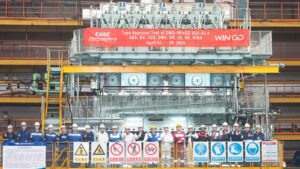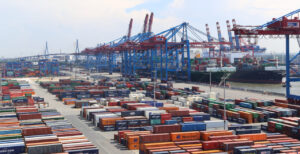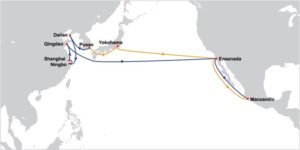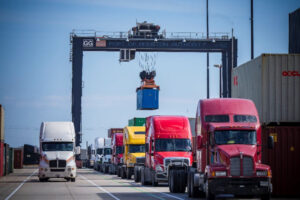Strikes at Canada’s West Coast ports have resumed after dockworkers rejected a tentative four-year wage deal that was initially tentatively agreed upon with their employers, the British Columbia Maritime Employers Association (BCMEA).
However, according to the BCMEA, ILWU’s internal caucus leadership made the decision before the matter could be put to a vote among the full union membership.
The ILWU nonetheless expressed their lack of confidence in the agreement’s ability to protect the employment of dockworkers both presently and in the long term.
“With the record profits that the BCMEA’s member companies have earned over the last few years, the employers have not addressed the cost-of-living issues that our workers have faced over the last couple of years as all workers have,” ILWU’s statement read.
“The term of the collective agreement that was given with today’s uncertain times, is far too long. We must be able to readdress the uncertainty in the world’s financial markets for our members.”
READ: MSC’s Far East-Pacific Northwest route shift postponed due to Canada’s strikes
7,500 dockworkers represented by the ILWU initially left their posts at ports across Canada’s Pacific Coast on 1 July after talks of a new labour contract broke down with the BCMEA.
According to a statement from Seamus O’Regan, Minister of Labour, and Omar Alghabra, Transport Minister, the BCMEA had given their formal notice of acceptance of the deal while the ILWU opposed ratifying the Terms of Settlement, despite their initial tentative agreement.
We have been patient.
— Seamus O'Regan Jr (@SeamusORegan) July 19, 2023
Canadians have been patient.
Every effort has been made.
But this cannot go on.
Statement from Minister Alghabra and me: pic.twitter.com/mVdbyLjEKA
Frustrated at the outcome, O’Regan and Alghabra argued that the terms represented a fair and balanced deal.
“We should not be here,” the statement read.
“The deal presented to the parties was the result of a constructive and substantive collective bargaining process. It was informed by weeks of collective bargaining and drafted by third-party mediators in the interest of both the union and the employer.
“We have been patient. We have respected the collective bargaining process. But we need our ports operating.”
READ: US ILWU rejects diverted vessels amid Canada strikes
Desperate to avoid the same strike-induced turbulence suffered by Canada’s West Coast ports earlier this July, all options are being considered to get ports back up and running as soon as possible.
Reuters reported that the Vancouver Fraser Port Authority, the federal agency responsible for the shared stewardship of the Port of Vancouver, said it was disappointed at the deal’s breakdown.
The agency also warned that persistent strikes occurring at the Port of Vancouver would have far-reaching consequences, affecting over 115,300 supply-chain jobs reliant on the continual transportation of goods through the port, while exacerbating Canada’s inflation.
As essential gateways for exporting natural resources and commodities while importing raw materials, the Ports of Vancouver and Prince Rupert have borne the brunt of the operational disruptions at ports this month, being among two of Canada’s three busiest ports.
READ: Small businesses hit the hardest by Canada’s West Coast strikes
Leader of the opposition Conservative Party, Pierre Poilievre, called out O’Regan in a tweet for his “colossal incompetence” in reaching a resolve between the two parties.
“He claimed to have secured an agreement to end the strike and now it is resuming with massive costs to consumers, workers, and businesses,” the tweet read.









